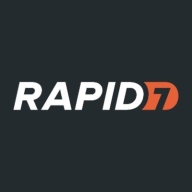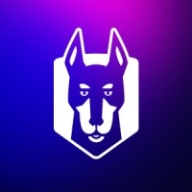

Snyk and Rapid7 InsightCloudSec compete in security solutions. Snyk appeals to cost-conscious buyers due to its pricing and customer support, while Rapid7 InsightCloudSec's comprehensive features make it a worthy investment.
Features: Snyk offers robust integration capabilities, efficient vulnerability scanning tools, and developer empowerment. Rapid7 InsightCloudSec provides comprehensive security posture management, advanced automation, and threat intelligence.
Room for Improvement: Snyk can enhance its library size, expand on-prem installation capabilities, and improve license compliance. Rapid7 InsightCloudSec could streamline its deployment process, enhance real-time threat detection, and simplify its integration setup.
Ease of Deployment and Customer Service: Snyk features a straightforward deployment model ideal for existing system integration, focusing on developer ease. Rapid7 InsightCloudSec, while requiring more setup time, offers superior customer service, providing extensive guidance and documentation.
Pricing and ROI: Snyk stands out for cost-effectiveness and quicker ROI with simple setup and efficient tools. Rapid7 InsightCloudSec, though pricier, delivers robust ROI with thorough features that justify higher costs.
| Product | Market Share (%) |
|---|---|
| Snyk | 1.3% |
| Rapid7 InsightCloudSec | 0.6% |
| Other | 98.1% |


| Company Size | Count |
|---|---|
| Small Business | 20 |
| Midsize Enterprise | 9 |
| Large Enterprise | 21 |
Rapid7 InsightCloudSec is a comprehensive CSPM tool catering to cloud security across Docker and Kubernetes workloads, ensuring rigorous data classification and protection, focusing on AWS and Azure platforms.
Organizations leverage Rapid7 InsightCloudSec for securing cloud environments, integrating smoothly into Kubernetes settings for extensive security oversight. This tool addresses data protection with governance and access controls, providing centralized visibility and alert mechanisms. Users depend on its threat detection capabilities, easing data security management on AWS and Azure. The platform integrates automated processes and agentless scanning to foster an understanding of cloud security dynamics. Enhancements in CNAPP management and more intuitive interfaces could further streamline its use.
What are the most important features of Rapid7 InsightCloudSec?In financial sectors, Rapid7 InsightCloudSec is critical for safeguarding sensitive information and ensuring compliance. Healthcare industries use it to protect patient data, adhering to strict regulatory standards. E-commerce businesses appreciate its ability to secure transaction data while maintaining service availability through reliable threat detection and mitigation strategies.
Snyk excels in integrating security within the development lifecycle, providing teams with an AI Trust Platform that combines speed with security efficiency, ensuring robust AI application development.
Snyk empowers developers with AI-ready engines offering broad coverage, accuracy, and speed essential for modern development. With AI-powered visibility and security, Snyk allows proactive threat prevention and swift threat remediation. The platform supports shifts toward LLM engineering and AI code analysis, enhancing security and development productivity. Snyk collaborates with GenAI coding assistants for improved productivity and AI application threat management. Platform extensibility supports evolving standards with API access and native integrations, ensuring comprehensive and seamless security embedding in development tools.
What are Snyk's standout features?Industries leverage Snyk for security in CI/CD pipelines by automating checks for dependency vulnerabilities and managing open-source licenses. Its Docker and Kubernetes scanning capabilities enhance container security, supporting a proactive security approach. Integrations with platforms like GitHub and Azure DevOps optimize implementation across diverse software environments.
We monitor all Cloud Management reviews to prevent fraudulent reviews and keep review quality high. We do not post reviews by company employees or direct competitors. We validate each review for authenticity via cross-reference with LinkedIn, and personal follow-up with the reviewer when necessary.